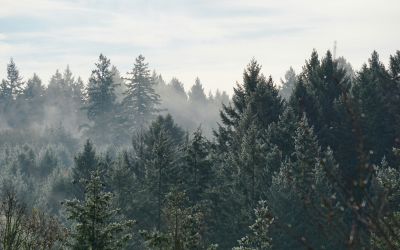Kick the habit - World Environment Day 2008
New Zealand, one of the first countries to pledge a carbon-neutral future, will be the main host of World Environment Day 2008, the UN Environment Programme (UNEP) announced today.
New Zealand, one of the first countries to pledge a carbon-neutral future, will be the main host of World Environment Day 2008, the UN Environment Programme (UNEP) announced today.
The challenge of climate change and threats to polar regions and beyond were spotlighted in Norway as part of World Environment Day (WED) 2007.
The focus of the global 2008 celebrations hosted in New Zealand will be on the solutions and the opportunities for countries, companies and communities to "Kick the habit" and de-carbonize their economies and life-styles.
Measures include greater energy efficiency in buildings and appliances, including light bulbs, up to a switch towards cleaner and renewable forms of electricity generation and transport systems.
The focus will also be put on the role of forests in countering rises in greenhouse gases. An estimated 20 per cent of emissions contributing to climate change globally are a result of deforestation. New Zealand, where forestry is an important industry and conservation of forests is a high priority, plans to use WED to highlight the role technologies and forestry management can play in achieving domestic and international climate goals.
"As part of New Zealand's drive for greater environmental sustainability, we've made a commitment to reduce our emissions. But to overcome the challenge of climate change, kicking the carbon habit must be a truly global goal.
During next year's World Environment Day events I look forward to learning about how other nations are addressing this challenge," said Prime Minister Helen Clark.
Achim Steiner, UN Under-Secretary General and UNEP Executive Director, said: "New Zealand is among a pioneer group of countries committed to accelerating a transition to a low carbon and carbon-neutral economy. We are therefore delighted to be holding the main WED 2008 celebrations in Wellington and in communities across this South Pacific nation".
He said developed and developing countries stood to benefit environmentally, economically and socially from more efficient low-carbon technologies and strategies.
"What we need is action to slow, stop and then to reverse the growth of global greenhouse gas emissions. A transition to a low carbon economy is essential to achieving this," said Mr. Steiner.
"Along the way we will see more rapid and widespread access to cleaner and greener energy, new job opportunities and reductions in unhealthy urban and in-door pollution. WED is about positive perspectives on change, and this is what we hope to highlight in New Zealand," he added.
Source: UNEP






